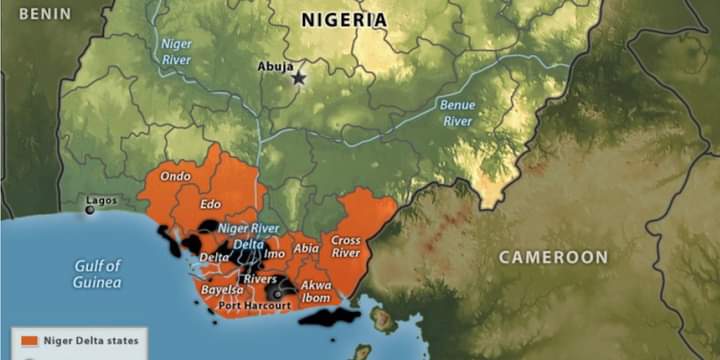NIGER DELTA AND OIL SPILLS: Between Compensation and Environmental Remediation By Abai Francis

When oil spills occur, what is normally expected from those liable is the need to compensate the affected victims of oil spill incidents by providing them with foods, medicines, and financial aids. But beyond compensation of victims is the need to cleanup the environment. Quite unfortunately, in the Niger Delta, while compensations are seldomly made out to victims without a legal tussle, the issue of cleaning up the environment is often and largely neglected.
The cost of oil spill is no doubt a burden on all. For the oil companies, it results in loss of revenues as well as it dents their reputation. And on the part of the victims oil spill impacts negatively on their sources of livelihood as the natural habitat becomes polluted and degraded leading to unemployment, health hazards, poverty, and death.
For these reasons and others, it is better that the occurrence or incidence of oil spills should be totally prevented at all cost. However, that has not been the case as reports of oil spills in the Niger Delta region, in particular, are occuring at an alarming rate and becoming a daily issue.
According to Amnesty International, the Niger Delta is one of the most polluted places on earth. As revealed in one of its online report titled: Niger Delta Negligence, it stated that, "Since 2014 Eni has reported 820 spills in the Niger Delta, with 26,286 barrels or 4.1 million litres lost. Since 2011, Shell has reported 1,010 spills, with 110,535 barrels or 17.5 million litres lost. That’s about seven Olympic swimming pools."
The international observing body further went on to state that, "These are huge numbers, but the reality may be even worse. The companies’ figures are vastly different to those of the Nigerian government, which recorded 1,369 Shell spills and 1,659 Eni spills in the same time frames. The spill volumes are also likely to be inaccurate as our research has shown how the companies underestimate the real amount."
In further environmental degradation of the Niger Delta region, one of the recent spill incidents was recorded in Bayelsa State on November 1, 2021, at the OML 29 Well 1 platform operated by Nigeria’s largest indigenous oil firm, Aiteo Exploration and Production Company Limited in the Santa Barbara River. In that incident, an estimated two million barrels of crude were reportedly spilled into the river, polluting the flora and fauna of the area. It took the company more than 30 days to stop the spill.
Oil spill effects on the environments and habitats can be catastrophic, stated Sciencing, an online platform: "they can kill plants and animals, disturb salinity/pH levels, pollute air/water and more...Habitat destruction is all too obvious with an oil spill. The most visible would be seen on shore, but beneath the water there is a very delicate balance in the reefs and shallow water habitats. Plankton, producers at the bottom of the food chain, are often killed by oil spills as a result of changes to the water and lack of sunlight beneath the oil slick. This effect moves right on up the food chain. Of particular concern are the very delicate sea animals, such as clams and mussels that feed on plankton," it added.
On the issue of the widespread pollution in the region, an environmentalist and the National Coordinator of the Center for Peace and Environmental Justice (CEPEJ), Chief Sheriff Mulade, recently faulted the pollution and degradation of the Niger Delta environment through gas flaring and other oil activities in the region, and called for remediation of the environment.
According to the CEPEJ Boss, "It is no more news that the exploration and exploitation activities of oil companies in the region have degraded and devastated the environment at an alarming rate, so much so that life expectancy in the Niger Deltan has been reduced due to health hazards from the polluted environment.
"The Niger Delta region has contributed immensely to the economy and wealth of the Nation as a result of the enormous oil production activities in the region. But despite the high oil production in states such as Akwa Ibom, Rivers, Delta, Bayelsa and Cross Rivers, oil pollution and reduction in life span are the prices that the oil rich region has to pay for feeding the nation."
He further stated that the effects of oil pollution which has rendered useless the traditional occupation of fishing and has led to high rates of unemployment and poverty, is also causing criminality in the region as the people have resorted to self help by way of engaging in pipeline vandalism, illegal refining of crude oil, illegal oil bunkering, destruction of forests, militancy and other forms of violence as a result of perennial environmental pollution and degradation.
"This morbid situation has been worsened by the poor environmental practices of the IOCs and the failure of government agencies to hold them accountable. And so, the oil multinationals and the Federal Government must interface and the FG should make aggressive efforts to increase the standard of environmental practices by the oil companies in the region," says Chief Mulade, while calling on the locals in the region to stop all acts of violence and vandalism that can lead to the continued pollution of the environment.
That the Niger Delta is reputedly known as one of the most oil polluted places in the world is an indictment on the Federal Government and the oil companies. Most specifically, the government has failed over the years to use oil proceeds to develop oil producing areas and to empower its inhabitants, as well as enact drastic laws and ensure their strict implementations for oil industry operators to adhere strictly to international best health and safety practices in the oil and gas sector.
As fossil fuel phases out in the next 50 years, the cleanup of the Niger Delta coast should be more vigorously pursued and achieved so that the non oil sector in the region, particularly the traditional occupation of fishing by inhabitants in those part of the region, would not be doomed in the future.
#penglobalreport #oilspills #NigerDelta



